Due to its flammable properties, sulfur has been popular with magicians, shamans, and alchemists since ancient times. It is part of gunpowder and is used in various pyrotechnic compositions. Many people associate sulfur with matches. Indeed, match heads contain this substance along with others, and when they are ignited, sulfur dioxide SO is released2with a characteristic pungent odor.
Despite this, sulfur has great biological role, responsible for many processes occurring in the body. It is involved in the formation of nails and hair, is needed for normal liver function, and is required for regeneration and cleansing processes. For the normal functioning of our organs and tissues, sulfur must come from food in sufficiently large quantities.
Basic information
Sulfur is a chemical element, a non-metal, most often found as a yellow powder. Its prevalence in nature is very high; it is found in many chemical compounds. The most famous of them are hydrogen sulfide, sulfur dioxide and sulfuric acid.
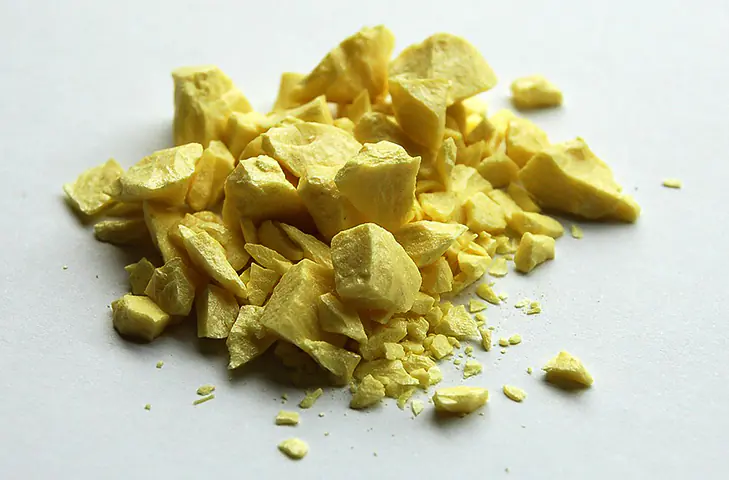
plays an important role biological role, as it is part of two essential amino acids - methionine and cysteine. Sulfur is classified as a macronutrient because it is found in the body in large quantities. The body of an adult may contain 140–175 g sulfur, with most being present in bone tissue, hair and nails.
With a deficiency of this element, brittle nails, hair loss and dullness, and liver dysfunction are observed.
Many foods (mostly protein foods) contain sulfur:
- Lean meat, animal liver, fish.
- Eggs (egg white contains 1.6%)
- Milk and cheeses.
- Legumes, cereals, wheat germ.
- Onion and garlic.
- White cabbage and Brussels sprouts.
- Fruits – apples, grapes, melon and orange.

The daily dose of sulfur consumption is 0.5–1 g depending on the person's weight. In case of illness or severe physical exertion, the need for this element increases to 3–4 grams.
Benefits of sulfur
- Sera participates in hemoglobin formation, and through it in the processes of oxygen transfer in the blood.
- Required for the synthesis of a number of important vitamins and hormones, including insulin.
- A lot part of keratins – proteins from which hair, nails, and the surface layer of skin are formed.
- Serves for regeneration of cells and tissues, including skin epithelium. This is related to the use of sulfur for dermatological diseases.
- Participates in the formation of bile in the gallbladder.
Medicines made from sulfur
In its pure form, sulfur is sold in pharmacies in the form sulfur powder, but it is rarely recommended for severe skin diseases.
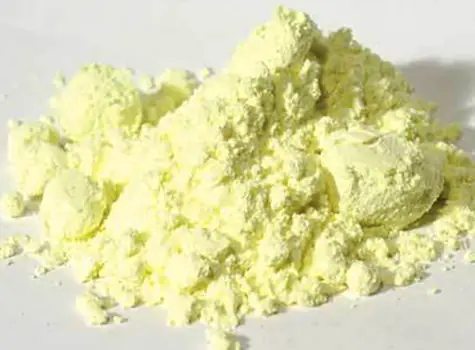
Most often used for dermatological problems sulfur ointment. In addition to the main substance, it contains water and petroleum jelly, which form an emulsion. The ointment has an antimicrobial effect and restores damaged skin epidermis. In addition, it is recommended to combat acne and pimples. It also has an antifungal effect.
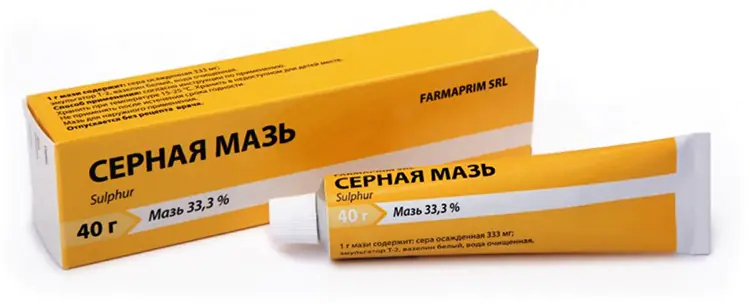
Used for medicinal and cosmetic purposes sulfur soap. Soap with a sulfur content of 10% or more has a healing effect on the skin. And soap containing about 3% of the substance is used for prevention, cleansing the skin, fighting acne, etc.
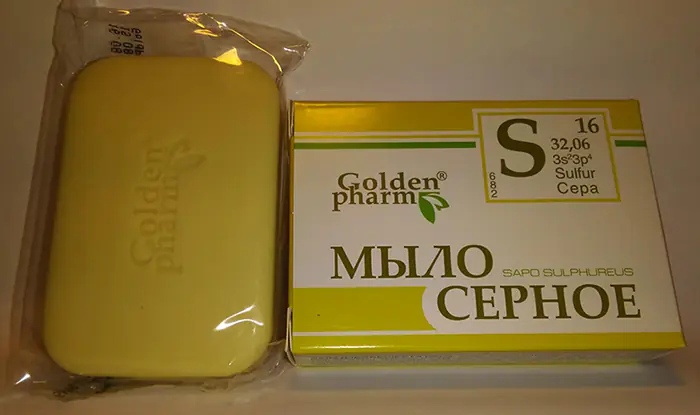
Sulfur is included in medicinal plasters for calluses.
Used as part of laxatives to treat constipation. Natural mineral water often contains dissolved hydrogen sulfide.
Hydrogen sulfide water used in various diets and health procedures; hydrogen sulfide baths are beneficial for the skin. They are also recommended for joint diseases - arthritis, rheumatism, etc. Hydrogen sulfide water has a healing effect on the musculoskeletal system and lowers blood pressure.
Finally, sulfur is included in many dietary supplements, along with other macro- and microelements.
Harm from sulfur
Sulfur ointment in large quantities can cause irritation on the skin in the form of redness, burning or itching. Not recommended for allergy sufferers and people with sensitive skin. It cannot be used if there are wounds, cuts, or abrasions.
Toxic compounds
Many sulfur compounds are poisonous, including sulfur dioxide, hydrogen sulfide, and sulfuric acid. Sulfur dioxide is often present in industrial emissions and is formed during the combustion of coal, oil, fuel oil, etc. It can enter city air from the pipes of boiler houses, thermal power plants, and metallurgical enterprises. This gas causes irritation of the upper respiratory tract, bronchospasm, and increases the sulfur content in the body.
Hydrogen sulfide is a toxic gas with a strong, unpleasant odor of rotten eggs. When inhaled, severe headaches, nausea, dizziness can occur, and at high concentrations, respiratory arrest, loss of consciousness, and even death. Despite the pronounced toxic properties of hydrogen sulfide, its aqueous solution in small concentrations is useful and is used for the treatment and prevention of many diseases.
Excess in diet
The amount of sulfur consumed through normal foods is safe for humans. But this element can enter the body with sulfites (food additives E221-E228), which are used as preservatives. In addition, it can enter the body in the form of sulfur dioxide from industrial emissions. People who come into contact with sulfur and its compounds at work develop chronic diseases.
Excess sulfur in the diet leads to:
- To digestive disorders.
- Upper respiratory tract diseases.
- Eye diseases, tearing, swelling of the mucous membrane, feeling of sand in the eyes, etc.
- Skin itching and rash.
Recommendations for use
The absorption of sulfur is facilitated by iron and fluorine, so if there is a lack of sulfur in the diet, it is worth increasing the consumption of these microelements.
Sulfur preparations can only be used during pregnancy and breastfeeding on the advice of a doctor. It is not recommended to use them to treat children under 3 years of age.
It is recommended to drink mineral hydrogen sulfide water to cleanse the liver, detoxify the body, and improve the functioning of the gastrointestinal tract.
Contraindications to its use: kidney disease, cancer, respiratory diseases.
Conclusion
Sulfur is responsible for many vital processes in our body. Under normal conditions, enough of it comes from food. But if there are signs of deficiency of this element in the body, you can take it additionally in the form of food supplements or mineral water. Skin diseases are treated with sulfur ointments and soap, but for this it is better to consult a specialist.
Hydrogen sulfide mineral water can be recommended for chronic liver diseases, and hydrogen sulfide baths are indicated for the treatment and prevention of many diseases - skin, musculoskeletal, cardiovascular and others.
All iLive content is reviewed by medical experts to ensure it is as accurate and factual as possible.
We have strict sourcing guidelines and only link to reputable sites, academic research institutions and, where possible, proven medical research. Please note that the numbers in parentheses ([1], [2], etc.) are clickable links to such studies.
If you believe that any of our content is inaccurate, out of date, or otherwise questionable, please select it and press Ctrl + Enter.
Sulfur, the sixteenth most abundant element in the universe, has been known since ancient times. Sometime around 1777, the Frenchman Antoine Lavoisier, the founder of modern chemistry, was convinced, unlike the rest of the scientific community, that sulfur was a chemical element. Sulfur is a component of many common minerals such as galena, gypsum and others. Why does the human body need sulfur?
What is sulfur?
Sulfur is a naturally occurring mineral that is found primarily near hot springs and volcanic craters. It has a distinct "rotten egg" odor caused by the smell of sulfur dioxide coming into contact with oxygen. As a supplement, sulfur comes in two forms: dimethyl sulfoxide (DMSO) and methylsulfonylmethane (MSM). About 15% of dimethyl sulfoxide breaks down in the body to the state of methylsulfonylmethane. Both forms of sulfur are good for treating all types of pain.
Sulfur occurs naturally in some plants such as horsetail, fruits and vegetables, some grains and milk. Sulfur plays an important role in joint health and helps the health of connective tissue - cartilage, tendons and ligaments. It can also slow down the nerve impulses that transmit pain signals, reducing pain.
Industrial sulfur
Sulfur is a by-product of chemical paper production and is used as an industrial solvent as well as for medical purposes. Sulfur is also used in creams and taken orally for pain. Unlike the first form of sulfur - MSM, its second form - DMSO - is absorbed through the skin.
Never use the commercial form of sulfur as a supplement to medications, as it may contain dangerous contaminants. You should talk to your doctor before taking sulfur either internally or externally.
Mud baths with sulfur
Mud baths containing sulfur - often called balneotherapy - can help treat skin diseases and arthritis. Balneotherapy is one of the oldest forms of pain treatment for people with arthritis. The term "balneotherapy" comes from the Latin word and means soaking in thermal or mineral water. Some people claim that these baths are beneficial for allergies and respiratory problems, but there is no scientific evidence for this.
People also use sulfur products on the skin to treat acne and other skin conditions.
Many - but not all - studies suggest that there may be a link between sulfur gases that are released into the environment and worsening allergies and respiratory diseases, particularly asthma.
Skin diseases
Sulfur pads and other types of sulfur packs are applied to the skin to help treat psoriasis, eczema, dandruff, folliculitis (infected hair follicles), warts, and lichen versicolor, a chronic skin condition that is characterized by areas that are a different color from the normal skin tone .
Arthritis
Balneotherapy - Well-designed studies, most of them conducted in Israel, show that balneotherapy can help treat various types of arthritis, including osteoarthritis (OA), rheumatoid arthritis (RA), and psoriatic arthritis. People who took sulfur baths and used other treatments experienced less morning stiffness, better walking ability, and reduced inflammation, swelling and pain in the joints, especially in the neck and back.
Mud therapy and Dead Sea salts dissolved in a regular bath also improved arthritis symptoms, but not as effectively as relaxing in the Dead Sea.
[1], [2]
Allergic rhinitis (hay fever)
Studies have shown that 2,600 mg of sulfur per day for 30 days can reduce seasonal allergy symptoms. But more and more research is needed to see for sure whether sulfur has a real effect.
[3], [4], [5], [6], [7], [8]
Shingles
One form of sulfur, dimethyl sulfoxide, has been proposed as a treatment to reduce the pain and inflammation of shingles (herpes zoster). Some evidence suggests that sulfur may indeed reduce damage and inflammation, but more research is needed to fully understand this.
Interstitial cystitis
Doctors also believe that DMSO is good for treating interstitial cystitis, a chronic inflammation of the bladder that leads to frequent urination at night, as well as pain. When sulfur in the form of dimethyl sulfoxide is used to treat interstitial cystitis, the doctor injects a liquid solution directly into the bladder.
General anesthesia may be necessary as the procedure may be painful and may cause bladder spasms.
Amyloidosis
Several studies may lead us to believe that sulfur, when applied in creams or orally, may help treat amyloidosis, a condition in which protein builds up in organs and damages them. However, since this is rare, there are no scientific studies on the effect of sulfur on amyloidosis. Use sulfur in creams only under medical supervision.
[9], [10], [11], [12], [13], [14], [15]
Food Sources of Sulfur
Sulfur is found in protein-rich foods such as eggs, meat, poultry, fish and legumes. Other good sources of sulfur include garlic, onions, Brussels sprouts, asparagus, cabbage and wheat germ.
Below is information about the sulfur content of some products:
| Product | Content, mg/100 g |
|---|---|
| Pork | 220 |
| Beef | 230 |
| Fish - horse mackerel | 210 |
| Fish - sea bass | 210 |
| Cod fish | 202 |
| Fish - chum salmon | 205 |
| Broiler chickens | 180 |
| Soup chickens | 184 |
| Chicken eggs | 177 |
| Dairy | 28 |
| Ice cream | 37 |
| Dutch cheese | 25 |
[16], [17], [18]
Sulfur for children
There is no data on the effects of sulfur on children's bodies
Sulfur for adults
There are no recommended amounts of sulfur to include in your diet, as most people get a full dose of this mineral from their diet.
Arthritis. Studies have shown that the doses of sulfur taken orally for this disease are 500 - 3000 mg MSM per day, or doses of cream or gel with 25% DMSO topically, applied 1 - 3 times a day
Hay fever. One study used 2600 mg per day for this condition.
Amyloidosis. Oral doses of sulfur for this disease are 7 - 15 g of DMSO per day, or topical doses are 50 - 100% DMSO, which is applied 2 times a week.
Precautions while taking sulfur
Because of possible side effects and drug interactions, you should only take sulfur products under the supervision of a knowledgeable physician.
Researchers believe that one form of sulfur, MSM, is safe. However, you should talk to your doctor before taking large doses of this or any other drug.
Do not take the form of sulfur - DMSO - internally without a doctor's supervision. Side effects from taking DMSO internally include headache, dizziness, drowsiness, nausea and vomiting, diarrhea or constipation. When used topically, DMSO may cause skin irritation.
If you have diabetes, asthma, or liver, kidney, or heart disease, do not use DMSO sulfur. Never take sulfur in the form of commercial grade DMSO.
DMSO, a form of sulfur, should not be used by pregnant or breastfeeding women.
Interesting facts about sulfur
Sulfur makes up almost 3% of the Earth's mass. If you think that's not much, the next time you look up at the sky and see the Moon, think about this: the earth contains enough sulfur to hold not one Moon, but two!
Pure sulfur is odorless, but many of its compounds smell very foul! For example, sulfur compounds enable skunks to demonstrate their terrible odor. Rotten eggs (and most smelly bombs) smell this way because of the odor of hydrogen sulfide, H2S.
There is much more sulfur in the Earth's core than in its crust - about 100 times more.
Penicillin is a natural sulfur-based antibiotic.
The benefits and harms of sulfur lie in the effects of sulfur-containing drugs on the body.
In order to understand their effect on health and learn how to use it, it will be useful to learn about the role of this substance for our body.
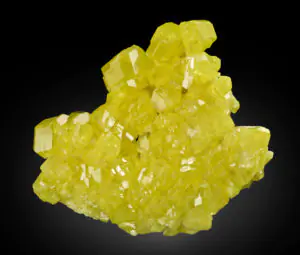
What is sulfur and its role in the body
Sulfur, S (full name sulfur), is a macroelement assigned atomic number 16 in the periodic table.
This substance, known for its fetid odor in compounds and flammable properties, plays an important role in humans, being part of amino acids such as methonine, cystine, vitamins (for example, thiamine), hormones and enzymes (for example, insulin).
In the human body, the proportion of sulfur is 0.25% of the total mass.
Sulfur itself is not toxic, but compounds of the element with other chemical components, such as hydrogen sulfide, are poisonous.
It plays a key role in blood clotting. Its beneficial properties include protecting protoplasm from bacteria.
As part of the body's compounds, sulfur has benefits for the growth of hair, nails, skin, and also in protecting the body from aging.
Useful properties of sulfur
Sulfur has a number of useful properties:
- maintains a sufficient amount of bile in the body for digestion;
- protects against exposure to radiation and any other radiation from electrical appliances;
- supports collagen synthesis;
- causes an even and lasting tan of the skin in summer;
- present in hemoglobin, participating in the process of transporting oxygen through the blood to the tissues and cells of the body.
The benefits of sulfur for a woman’s body are manifested in protection from environmental harm and stress factors. It improves immunity and general condition of the body. The microelement prevents the appearance of wrinkles, makes the skin elastic and firm.
In addition to the listed beneficial properties, the element cleanses the blood and activates brain functions.
In addition to its presence in the body as one of the components responsible for its activity, the benefits of sulfur are also manifested in the treatment of certain diseases.
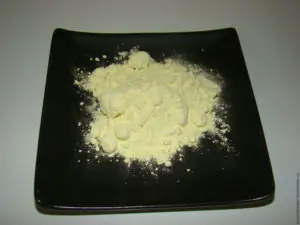
Application of sulfur
Sulfur has been used to treat humans since ancient times. Modern medicine uses a number of medicines containing this element and its compounds. For example:
- natural hydrogen sulfide baths have a beneficial effect on the body;
- sodium thiosulfate solution is used to treat scabies, neuralgia, arthritis;
- streptocide and phthalazole serve as antiseptic drugs.
Sulfur is used to produce medicinal soap, which has an antiseptic and drying effect. Purified, or medical, sulfur is used to fight parasites, intestinal diseases and frequent constipation.
Sulfur is used to treat eczema, furunculosis and demodicosis. Hair and anti-dandruff masks are made from it: the element acts as a hair growth stimulator and also eliminates oiliness.
Indications for use
Doctors prescribe treatment for sulfur when it is deficient in the body. Medicines made on the basis of the element have an antiseptic and antibacterial effect; they are used for the treatment of scabies, fungal diseases, and juvenile acne.
The healing properties of sulfur are recommended for use by people suffering from rheumatism and osteoarthritis. The main thing is to follow the recommendations for use, since an overdose of the drug can cause harmful intoxication.
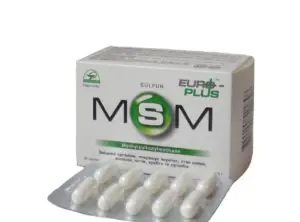
How to use sulfur
Sulfur-containing drugs are taken simultaneously with food.
You should only buy purified sulfur from the pharmacy.
Feed sulfur preparations for animals are not intended for human consumption.
The optimal course of treatment would be 1 month. If there is no expected benefit, you should stop taking it until you consult your doctor.
Sulfur powder for oral administration
Powder for internal use is prescribed for chronic diseases:
Sulfur for oral administration is purified and comes in tightly sealed jars. Taking purified sulfur is also prescribed for the treatment of enterobiasis.
Medical purified sulfur, or sulfuric anhydride, is beneficial in cases of:
- restoration of the body's defenses;
- for expectorant purposes: hydrogen sulfide is absorbed through the intestines and enters the lungs through the blood;
- for constipation, purified sublimated sulfur is prescribed;
- to enhance the body’s ability to neutralize weak poisons.
When taking sulfur, you can drink enterosorbents if you wish: they will reduce the harm of frequent gas formation that the drug can cause.
Sulfuric ointment
In addition to oral administration, medical purified sulfur is used externally in the form of ointments to treat:
For dermatitis, medicinal sulfur ointment is recommended to be applied twice a day. The sulfur concentration in the preparation is 5%.
The sulfur concentration in acne ointment is 33%. It is applied to clean skin and dry skin. It is advisable to do the procedure in the evening and not rinse off immediately after applying the product.
During treatment of scabies, do not wash off the ointment from the skin. You should also not shower during therapy. Only after a 5-day course of treatment should you wash everything off thoroughly and put on clean clothes. Bed linen also needs to be changed.

Products containing sulfur
Many organic products contain this useful element. Their daily use can bring benefits comparable to taking sulfur powder orally:
Quail and chicken eggs contain the largest amount of the element.

There are also useful organic sulfur supplements on the market, such as chewable Siberian larch gum.
Daily intake of sulfur
The consumption rate for the benefit of the body is from 500 mg to 1 g per day. The dose for athletes due to increased physical activity is increased to 3 g per day, and mineral water containing sulfur is also prescribed in the diet.
Symptoms of lack of sulfur in the body
If the body lacks an element, a person’s immunity decreases, which is manifested by a decrease in vitality, lethargy and fatigue. Disturbances in the functioning of the body are reflected in appearance.
Negative symptoms of sulfur deficiency in the body are:
- hair loss;
- thinning nails;
- loose skin;
- rashes on the skin in large quantities - due to the fact that the body cannot cope with toxins;
- constipation;
- problems with blood vessels.
Excess sulfur in the body
The benefits of sulfur turn into harm when the drug is abused.
An excess of an element appears as:
- rashes;
- itching;
- conjunctivitis;
- “sand in the eyes”;
- weight loss;
- deterioration of brain activity.
An overabundance of microelements is also caused by the abuse of products into which the element is introduced in the form of sulfates to extend shelf life, for example, when smoking.
Side effects and contraindications to the use of sulfur
Side effects when using sulfur-based drugs manifest themselves in the form of harmful poisoning. In case of acute intoxication, a person experiences convulsions, dizziness - to the point of loss of consciousness, and bronchitis with various complications may develop.
The skin may develop clogged pores and boils with severe itching.
Manic and mental disorders can also be side effects of long-term use of sulfur-containing drugs.
Interaction with other substances
Sulfur is well absorbed with sufficient amounts of iron, molybdenum, and fluorine in the body. Conversely, its antagonists are selenium and lead.
Conclusion
The benefits and harms of sulfur depend on the purpose of the prescription and compliance with the dosages of the drugs.
People call sulfur the “mineral of beauty” because, thanks to its beneficial properties, it ensures healthy appearance of nails, hair and skin. An excess of the element in the body does not cause any harm from severe poisoning, although doctors associate its widespread use in the food industry to increase the shelf life of products with an increase in statistics on bronchial asthma.



